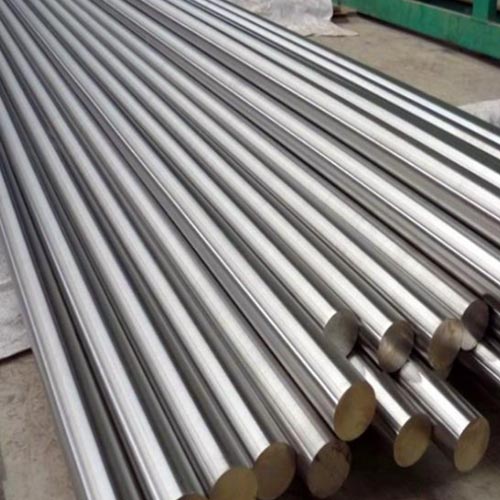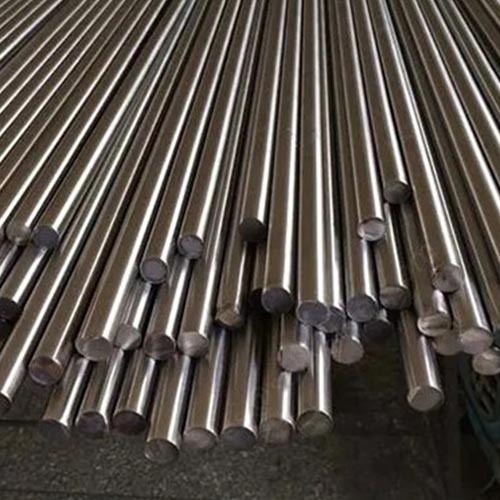Introduction

Stainless steel is renowned for its corrosion resistance and durability, making it a material of choice in various industries, especially in harsh environments where corrosion poses a significant challenge. This blog explores the specific characteristics and durability of special stainless steel alloys designed to withstand extreme conditions.
Understanding Special Stainless Steel
Special stainless steels refer to alloys tailored with specific compositions to enhance their resistance to corrosion, heat, or mechanical stress. These alloys often contain elements such as chromium, nickel, molybdenum, and sometimes titanium or niobium, which impart unique properties to the steel.
Key Properties of Special Stainless Steel
Corrosion Resistance
Special stainless steels exhibit exceptional corrosion resistance due to high chromium content, forming a passive oxide layer on the surface that protects against rusting and pitting. This corrosion resistance is crucial in environments with high humidity, salt exposure (like marine environments), or chemical exposure (such as in industrial settings).
Corrosion Resistance of Special Stainless Steel Grades
| Stainless Steel Grade | Corrosion Resistance |
|---|---|
| 316L | Excellent in marine and chemical environments |
| 904L | Very good in acidic and corrosive environments |
| 2205 (Duplex) | High resistance to chloride corrosion |
Mechanical Strength
In addition to corrosion resistance, these alloys offer robust mechanical properties suitable for challenging applications. They maintain strength at high temperatures and exhibit good ductility, crucial for structural integrity in harsh environments. For example, 2205 duplex stainless steel combines high strength with excellent corrosion resistance, making it ideal for offshore oil rigs and bridges exposed to saltwater.
Heat Resistance
Certain grades of stainless steel demonstrate superior heat resistance, maintaining mechanical properties at elevated temperatures. This feature is critical in industries such as aerospace, automotive, and chemical processing, where components must withstand high temperatures without significant degradation in performance or structural integrity.
Case Studies: Applications in Harsh Environments
Marine Environments
Special stainless steels are extensively used in marine applications due to their resistance to saltwater corrosion. For instance, 316L stainless steel is commonly used in marine hardware, seawater desalination plants, and offshore oil platforms due to its excellent resistance to corrosion and pitting in chloride-rich environments.
Chemical Processing
In chemical plants, where exposure to corrosive chemicals is constant, alloys like 904L provide excellent resistance to a wide range of acids and bases. This resistance ensures prolonged equipment lifespan and safety, reducing maintenance costs and downtime associated with corrosion-related failures.
Testing and Quality Assurance

To ensure the reliability of stainless steel in harsh environments, rigorous testing protocols are employed. These include corrosion testing (such as ASTM G48 methods for pitting resistance), mechanical testing (to assess tensile strength and toughness), and non-destructive testing techniques (like ultrasonic testing) to detect flaws and ensure material integrity over time.
Conclusion
Special stainless steels are indispensable materials in industries requiring durability and corrosion resistance in harsh environments. Their unique compositions and properties enable them to withstand challenging conditions, ensuring long-term performance and reliability. Whether in marine, chemical processing, or high-temperature applications, these alloys continue to play a vital role in modern engineering and industrial sectors.
FAQ
Q:What makes special stainless steel different from regular stainless steel?
A:Special stainless steels are alloyed with specific elements like chromium, nickel, and molybdenum to enhance corrosion resistance and mechanical properties beyond those of standard grades. This allows them to withstand harsher environments and higher temperatures.
Q:How do I choose the right grade of stainless steel for my application?
A:Consider factors such as environmental conditions (temperature, chemical exposure), mechanical requirements (strength, ductility), and cost-effectiveness when selecting a grade. Consult with materials engineers or stainless steel suppliers to determine the best alloy for your specific needs.
Q:Are special stainless steels more expensive?
A:Yes, due to their alloy composition and enhanced properties, special stainless steels can be more costly than standard grades. However, their extended lifespan and reduced maintenance often justify the initial investment, especially in critical applications where corrosion resistance is paramount.
Q:Can stainless steel be welded?
A:Yes, most stainless steels are weldable using appropriate welding techniques and filler materials designed for stainless steels. It’s important to follow recommended welding procedures to maintain the alloy’s corrosion resistance and mechanical properties.
Q:What industries commonly use special stainless steel?
A:Special stainless steels find applications in marine, chemical processing, oil and gas, pharmaceuticals, and aerospace industries, among others. Their versatility and durability make them suitable for demanding environments where corrosion resistance and reliability are crucial.
